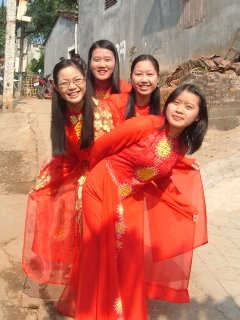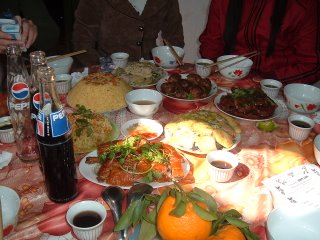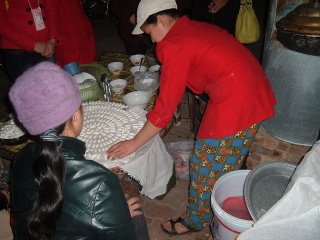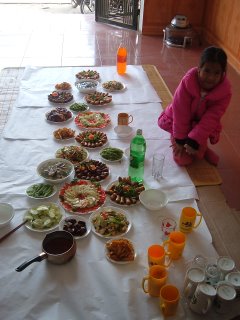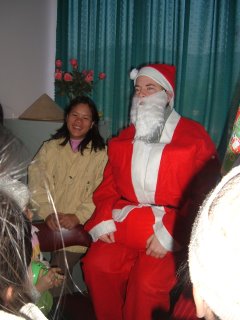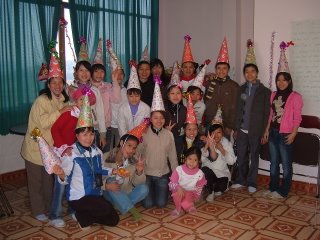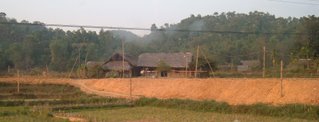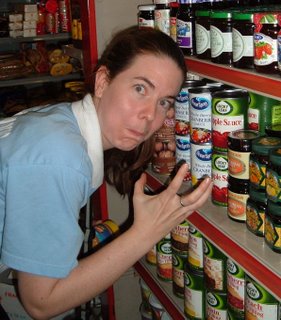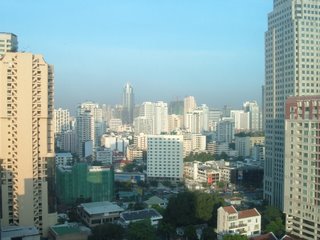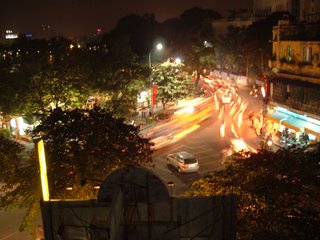
I have to say, I think I like Hanoi as a capital city far better than I liked Tana in Madagascar. Now, the initial fascination may still wear off with time, but first impressions are important. I liked Tana well enough - it definitely had character...or something. Depending on how you viewed it, it had the ability to keep you completely enthralled with a single activity the entire day - or you wasted whole days trying to complete one measly errand.
I don't know that Hanoi is any more efficient, but relative to Tana, 1) getting around is much simpler (metered taxis!!! I still can't get used to the idea that I can just jump in a cab and go rather than standing in the rain and bargaining to save my pocketbook) and 2) you can actually
find stuff here. Streets have names. There are updated tourist maps. And 3) breathing the are is much,
much, MUCH more enjoyable.
I still am very happy that I am not living in Hanoi. It's fun, full of lights, and offers plenty of gastronomic and shopping orgy opportunities - all important factors for the expat life - but something that could get old very quickly, and probably best left for those regular trips back and not for every single night of the week options.
But, for those of you who will best understand me - let me share a few of the reasons that Hanoi will be come my next favorite home away from home:
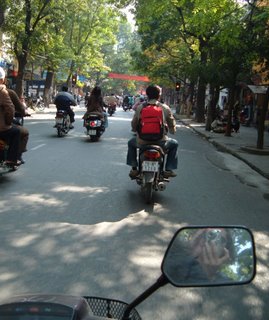
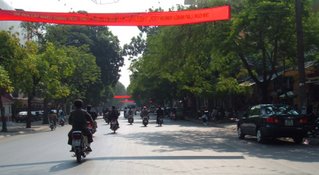
1) The morning motorbike taxi (
xe om) commute to the office...and the tree-lined (!!) streets of Hanoi - this will be far more pleasant in the hot summer months than the treeless streets of Madagascar cities...
2) Who wouldn't love a country where "Young Green Rice" is a popular ice cream flavor?!?!
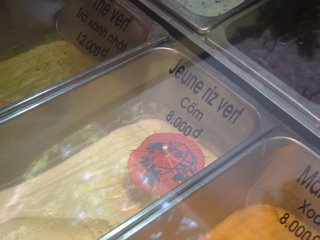
BTW: In Hanoi there really is a surprising amount of French - but basically in the inverse of French/English in Madagascar. Menus in most restaurants are automatically in English, but the good ones have French translation. And I've run into a lot of French-speaking tourists in hotels. Most information is given in both French and English. But considering English is essentially non-existent outside of the capital, you can bet there isn't any French to fall back on either...
3) Okay, so not really a love, but what's up with this architecture? Granted, it can look nice when done right and viewed from the front...
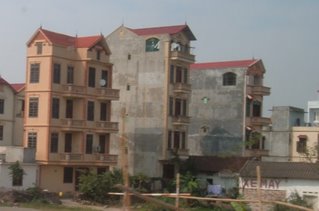
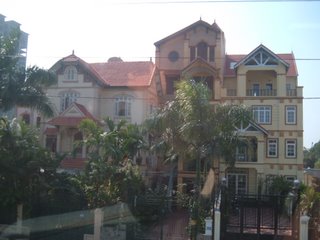
4) REAL international food choices: over my first days/weekend in Hanoi, we ate American deli sandwiches everyday for lunch (yes, Jon, I know what you're thinking of me right now...), and
real Indian, Thai, Italian, and Japanese (picture of Ali and one platter of sushi) for dinner.
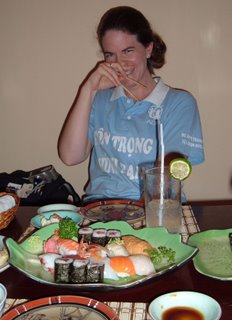
Oh, and then I almost forgot the fruit juices! Smoothies with every meal. And there will be more sampling for my next trip there.
5) Cleanliness. The streets are wide, tree-lined, and CLEAN. Sidewalks exist (although are usually used as motorbike parks), and main roads are wide and well-maintained. There's still narrow cobblestone back alleyways, but they're manageable. Oh, and those metered taxis? They're all practically brand new. No clunker old yellow Peugeots that leave you to wonder if they're actually going to make it to your destination.
There are lakes scattered throughout the city, similar to Tana, and those are about as clean as in Tana, but hey, it
is still a developing country. You do get more of that open-sewer smell that is ubiquitous in Tana, but it's intermittent enough that you are actually surprised when you suddenly happen upon it.
6) Number of beggars is sooooo much more manageable. And most often they are old, old, old people who walk around a bump you with those funny cone hats turned upside-down for collecting spare change - no annoying children that I've seen yet.
I'm sure I will continue to discover things that I love and hate about my new central city, but all went well on the first meeting, and I have plenty reason to anticipate going there on a regular basis! Now...if I can only find some friends to share the city with...


